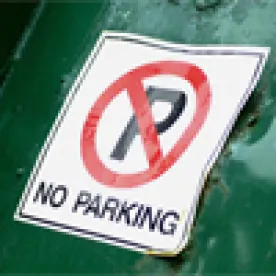How broadly will the appellate court's interpret a restrictive covenant applicable to real property? Not so broadly as to prohibit a parking lot to be used by customers for an otherwise expressly prohibited use.
The Carpenter Tract and the CVS Tract
Mr. Carpenter owned a 15-acre tract of land (the "Carpenter Tract"), a 2-acre portion of which he conveyed to an entity he controlled (the "CVS Tract"). His entity then leased the 2-acre CVS Tract to CVS Pharmacy, and, as a condition of/enticement to that lease with CVS, Mr. Carpenter placed a restriction on the Carpenter Tract prohibiting the location of "a health and beauty aids store, a drug store, a vitamin store, and/or a pharmacy".
Mr. Carpenter's entity later sold the CVS Tract.
The Sale of the Carpenter Tract and the Charter Tract
Plaintiff developers contracted to purchase the Carpenter Tract, encumbered by the restrictive covenant, and contracted to purchase an adjacent tract of land (the "Charter Tract"). The Charter Tract, though adjacent to the Carpenter Tract, is not encumbered by the restrictive covenant.
The Shopping Center
The developers sought to construct a shopping center to be located on both the Carpenter Tract and the Charter Tract, and to lease a portion of the Charter Tract to Walmart.
The Walmart would violate the covenant. But that's not the rub because the Charter Tract is not encumbered by the covenant. Thus, the Walmart store is not the issue.
The Parking Lot
The issue is that the developers intend to build a parking lot and access easement on the covenant-encumbered Carpenter Tract, which would be used by the shopping center customers and tenants. In effect, the covenant-encumbered Carpenter Tract would be used as a parking lot and ingress/egress means for a covenant-prohibited use.
So, the question: does the covenant prohibit a store as well as parking or access to the store?
The Appellate Ruling
The Court of Appeals affirmed summary judgment in the developers' favor as to their declaratory judgment claim, concluding that the proposed parking lot/access use of the covenant-encumbered Carpenter Tract does not violate the restrictive covenant.
The Court hammers the notion that the covenant "must be construed according to the plain ordinary meaning of its words." Can you see where this is going?
The Court is nonplussed by the citation to out-of-state authority in this particular instance, noting that the Texas case relied upon by defendants is inapposite because the covenant in that case was drafted to prohibit the "business activity of operating a food store", which would also prohibit parking. On the other hand, the covenant applicable to the Carpenter Tract only prohibits the actual "store", which does not reach far enough to prohibit parking.

The Court's holding is fact-specific, and does not gut all restrictive covenants in this regard. But, as usual, we see that careful drafting is critical.
"What do you think this means when it says, 'parking'"?




 />i
/>i

